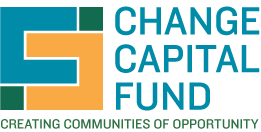Working from home, Good Old Lower East Side (GOLES) Executive Director Damaris Reyes has activated the emergency mode for LES Ready!, a coalition created during Hurricane Sandy, to coordinate the actions of some thirty nonprofits in Lower Manhattan in times of disaster. In the midst of the COVID-19 pandemic, LES Ready! Members are calling on homebound seniors in public housing and others with high vulnerability to coronavirus to check-in and offer help. One person told Damaris that he was down to his last $5.00; he did not know he could go out to the local school and pick up free meals. In other cases, GOLES’ staff are helping people without internet apply for unemployment benefits, getting laptops for schoolchildren, and advising people on how to care for relatives stricken with the virus.
GOLES is one of hundreds of community organizations that were born in crisis during the 1980s and 1990s, including dozens of community development corporations (CDCs) that collectively rehabilitated over 100,000 apartments that had been abandoned or foreclosed. Working in low-income neighborhoods and in pockets of poverty in gentrified neighborhoods, these organizations have quickly pivoted to operating remotely while simultaneously reaching out to people who are most vulnerable, both to the virus and to its economic impact.
Even while home schooling young children, worrying for their aging parents and afraid they will not receive their own paychecks, the staff of these organizations are taking care of thousands of our low-income neighbors, mostly people of color, who are hit first and worst by each crisis, and who struggle even in between crises. The staff at Bedford Stuyvesant Restoration Corporation are connecting people experiencing anxiety and depression to free mental health counseling, and connecting people looking for work to essential businesses looking for workers. They are helping income-eligible households get earned income tax credits (EITC), food stamps, stimulus checks and other COVID relief assistance to help make ends meet.
Make the Road NY is getting food and other resources to immigrant families with no benefits, no health insurance and no income in three COVID hot spots in Corona, Queens; Bushwick, Brooklyn and Richmond, Staten Island.
Banana Kelly Improvement Association manages safe and secure affordable apartments for hundreds of South Bronx residents earning 30% of median income or less. All these groups continue to do census outreach and education, something which if neglected would have negative repercussions for New York City for the next ten years.
These nonprofits are an essential part of the infrastructure of New York City. They build and manage housing, they help neighborhood businesses get loans and grants, they train residents for jobs, they run after school tutoring and college prep programs. In times of crisis—during 9/11, Hurricane Sandy and now—these organizations also become de facto relief organizations, serving as trusted lifelines for low and moderate income New Yorkers in our economically polarized city.
The Change Capital Fund (CCF) is a unique collaboration of 15 banks, foundations, and intermediary organizations, who together with the Mayor’s Office of Economic Opportunity provides grants and expertise to community development organizations.
Housed at the United Way of New York City, CCF has helped community development organizations build technology infrastructure, including database and tracking systems that are indispensable now as their staff work remotely.
We urge the city, state and the philanthropic community to step up their support for nonprofit community organizations during this crisis, and to continue to sustain them amply in good times.
When we applaud essential workers each night, let’s include heartfelt cheers for these unsung heroes and all they are doing for the communities hit hardest in hard times.
Patricia Swann and Steven Flax are the co-chairs of Change Capital Fund. Swann is the Senior Program Officer at The New York Community Trust. Flax is the Administrative Vice President at M&T Bank.
